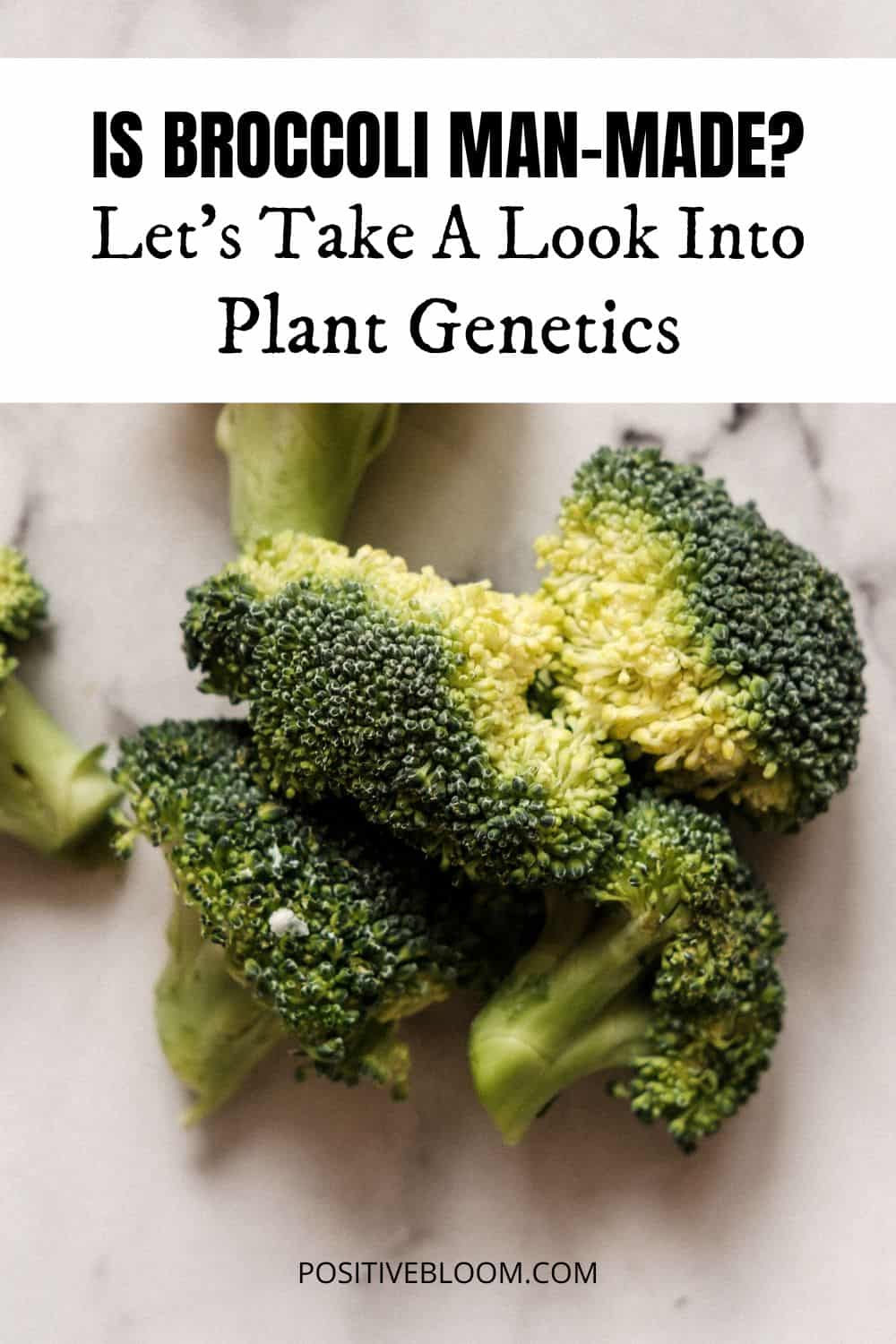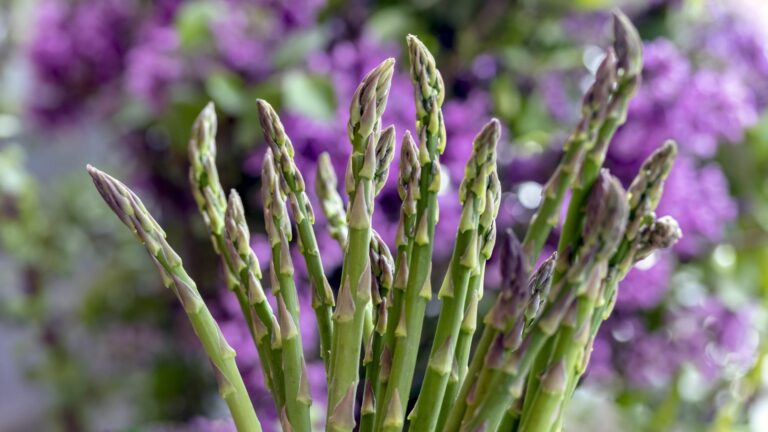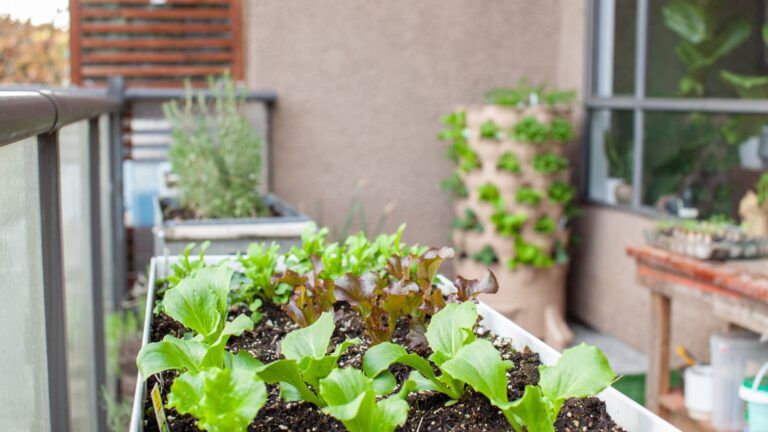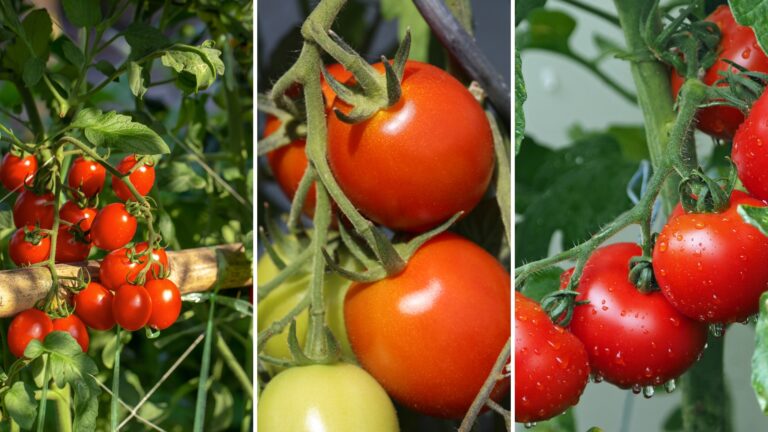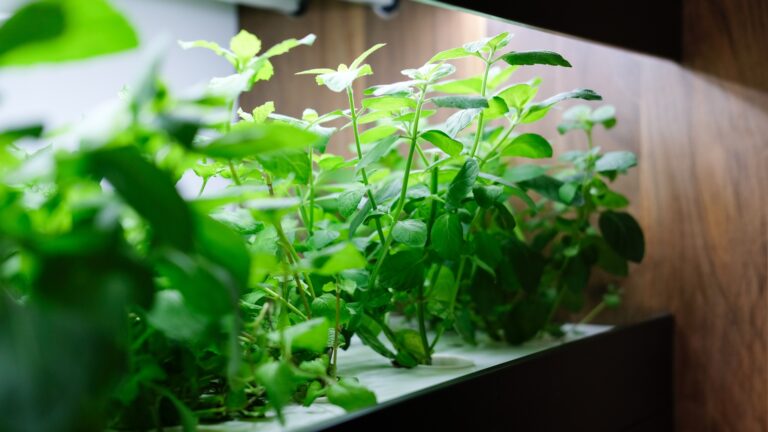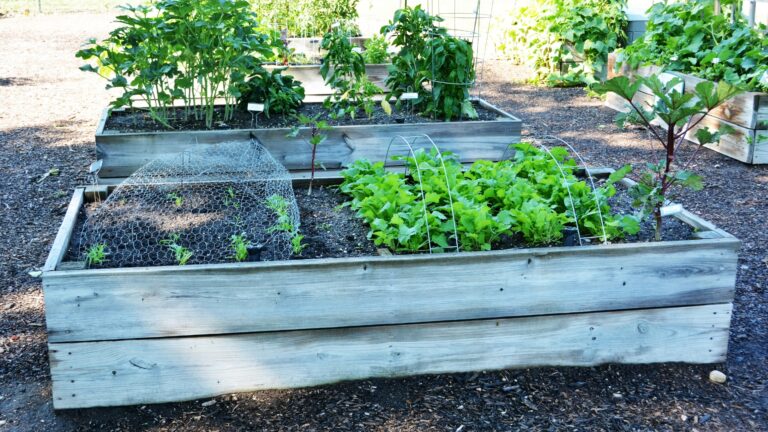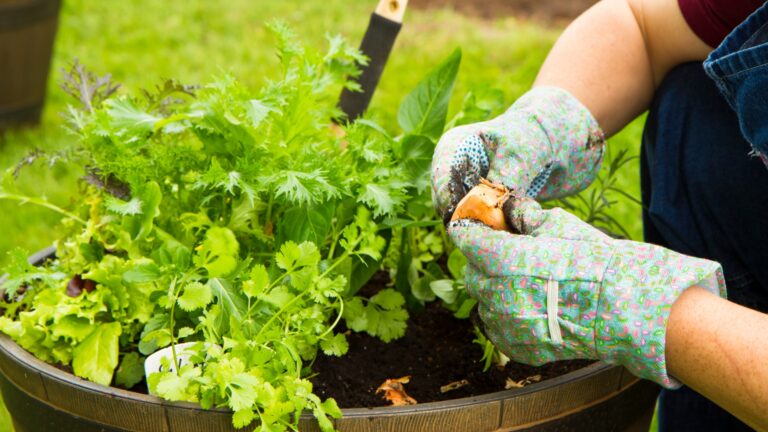Is Broccoli Man-made? Let’s Take A Look Into Plant Genetics
As science advances, numerous new vegetable varieties have emerged — this includes new species of carrots, some cross-breeding between different types of veggies, and also the improvement of classic veggies.
Did you know that they have extracted the hormone that protects fish from the deep, cold water of the Antarctic sea and put it in vegetables so that they can become frost-hardy?
That’s right, these genetically modified organisms have changed the course of gardening!
While some folks are against GMOs, we can’t deny that it has helped us a lot in all sorts of industries. Many man-made vegetables and fruits are widely used today — some of them might even surprise you!
So, if you were wondering: “is broccoli man-made?”, keep reading to find out the answer!
Is Broccoli Man-Made?
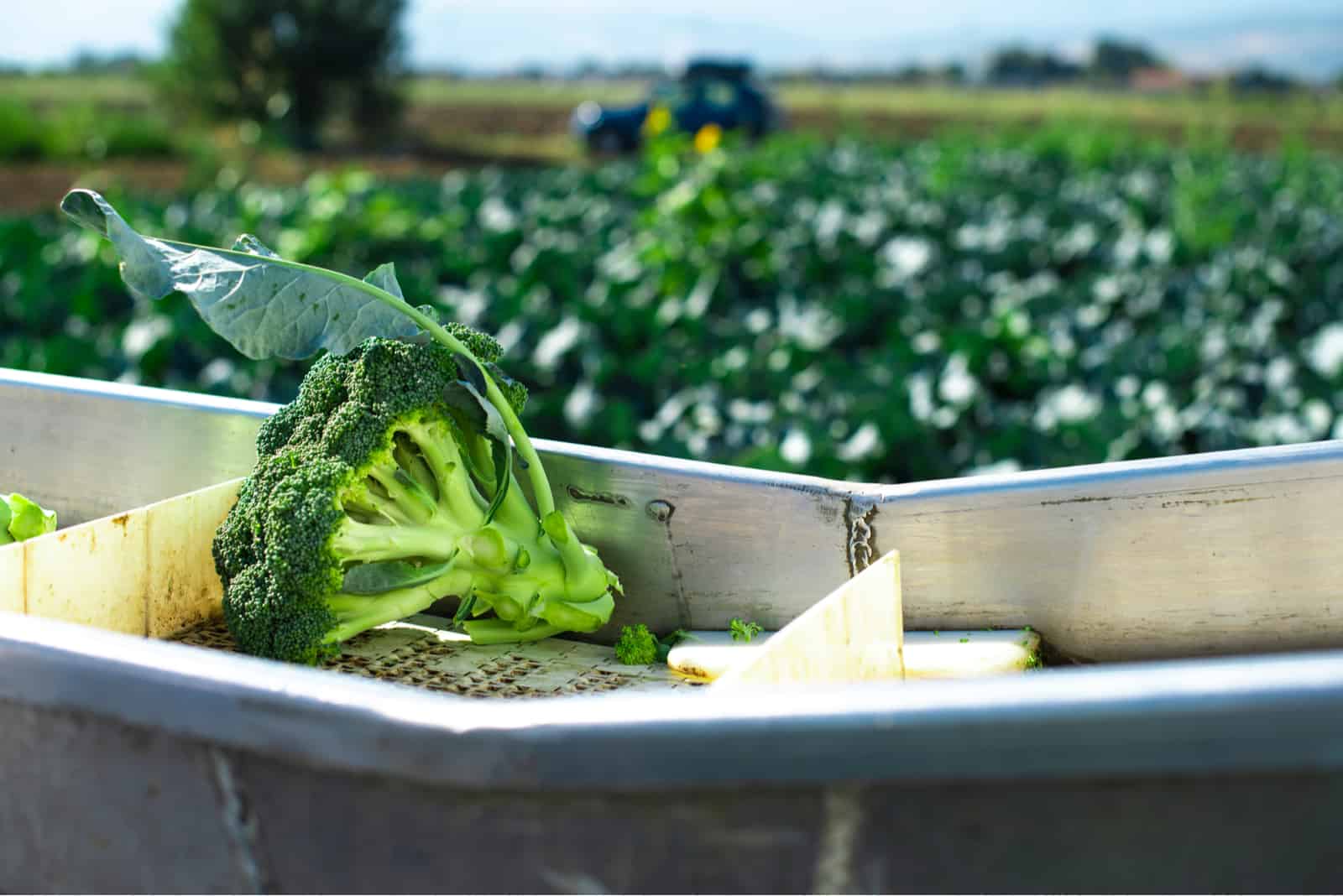
When we say that an organism is genetically modified, it means that its genes have been mixed up. Let’s trace back to the fish that are able to survive deep, cold waters — they produce AFPs (antifreeze proteins) that provide freezing tolerance.
So, what geneticists did was locate what gene produces this protein (because our DNA contains a bunch of these coding genes that are later transcribed into proteins with specific functions and structures). Then they put this specific gene into a vegetable’s DNA so that they are now able to produce the same protein!
Recombinant DNA is the foundation of GMOs and genetic engineering.
However, this is all about today’s science — things weren’t the same back then. Even though gardeners and botanists didn’t have the same conditions as today, there were still some specific ways in which they managed to develop new varieties.
So, the bottom line is — yes, broccoli is man-made.
Although the exact date of the development of broccoli is unknown, it is thought that the earliest cultivars of this plant appeared more than 2000 years ago. It was first cultivated in Italy and exported to America and England in the 1700s before being distributed around the rest of the world.
Some other sources say that the broccoli plant originates from the Mediterranean and East Asia, while there’s also data that traces back to the Roman Empire.
Is Broccoli Considered a GMO?
Now we know that broccoli is man-made, but is it considered to be a genetically modified organism?
Well, there is a thin line between these two terms.
However, broccoli was not made by recombining DNA from two different veggies. Therefore, it is not considered to be a GMO, but rather a product of selective breeding (if you want to know more about this type of breeding, keep reading!).
How Was Broccoli Created?
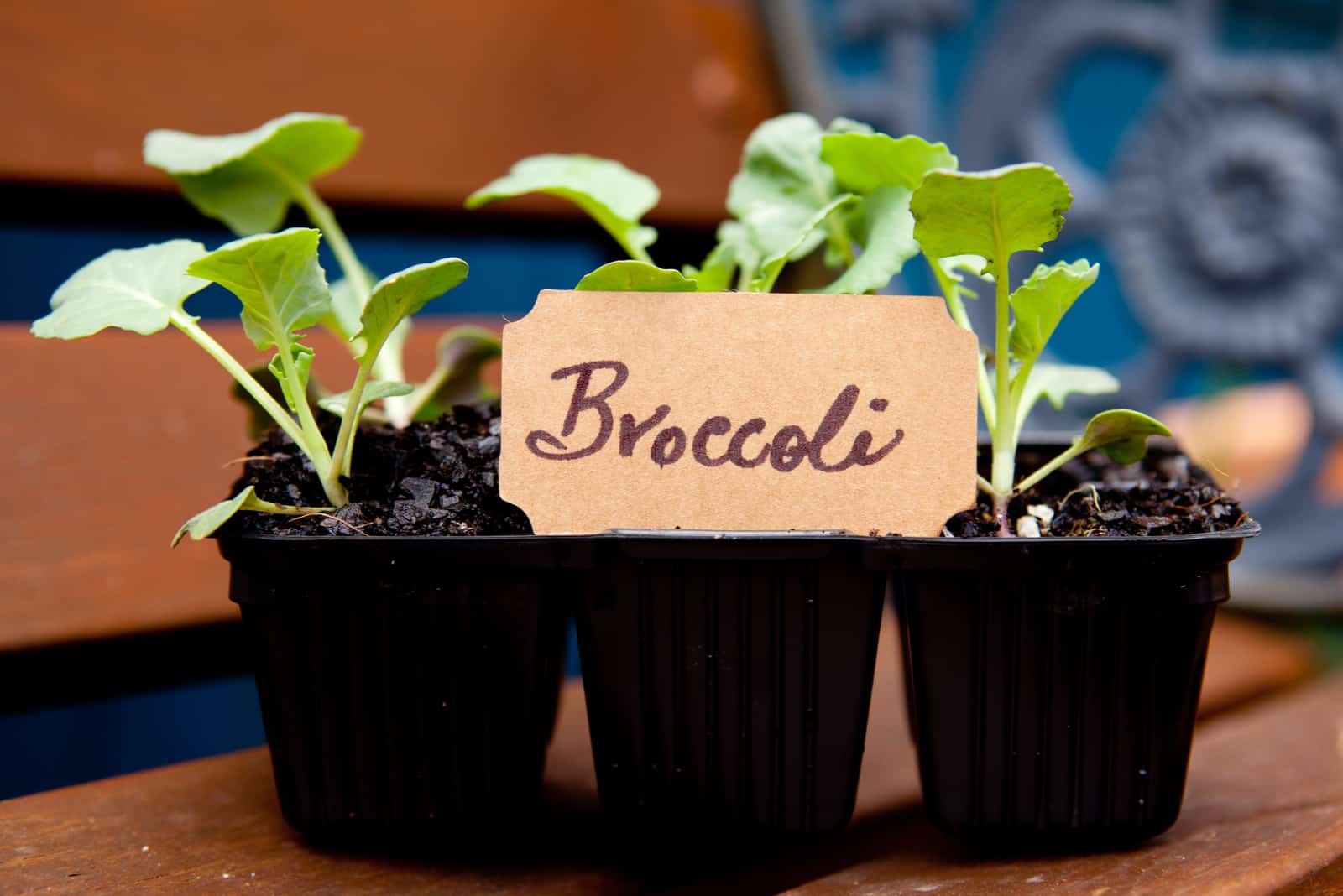
The name broccoli originates from the Italian word “Broccolo”, which actually means “the flowering crest of a cabbage”. There is also a diminutive, “Brocco”, which means sprout.
When we go back 2000 years, we can’t imagine any vegetable being made in labs by using genetic modification methods. Instead, there was a specific process known as selective breeding.
Selective breeding (artificial selection) involves choosing parents with specific traits to breed with one another in order to produce offspring with more desired traits. For thousands of years, humans have carefully bred a variety of animals and plants.
In gardening, this process has allowed us to have much tastier crops that can survive for longer, plants that are not as susceptible to pests and diseases, and ones that can tolerate frost (remember the fish story!).
There are numerous methods that you can use to breed plants — these include using the seeds from the desired plant, layering, grafting, and propagation from the cuttings.
It takes a very long time to obtain a plant with desired characteristics, so it’s no surprise that this plant dates back to the Roman empire!
So, let’s take a look into broccoli’s parents.
Wild mustard or wild cabbage (also known as Brassica oleracea) is considered to be an ancestor of broccoli plants. However, it is not a direct ancestor — over time, many similar plants were produced and are now cultivated in almost any garden. It took a long time for Broccoli to reach its current form!
Some of the other cultivars include collard, kohlrabi, Brussels sprouts, kale, cauliflower, and cabbage — these are some of my favorite vegetables, and they all belong to the famous Cabbage family (Brassicaceae).
When it comes to US history, broccoli was unknown until Thomas Jefferson, a famous farmer, planted the first broccoli in the early 1700s. It’s interesting to note that it wasn’t until the 1920s that broccoli really took off in the United States.
Broccoli is a food that Americans hold in high regard, according to a Green Giant survey. It is a popular vegetable among consumers, winning the popular vote in 39 of the 50 states.
A new plant has also emerged that is considered to be an upgraded form of broccoli, and it is called broccolini. This plant goes another step further from the regular broccoli growing stages. After deriving from wild cabbage, broccoli is then crossed with Chinese broccoli to create the hybrid broccolini.
More About Broccoli
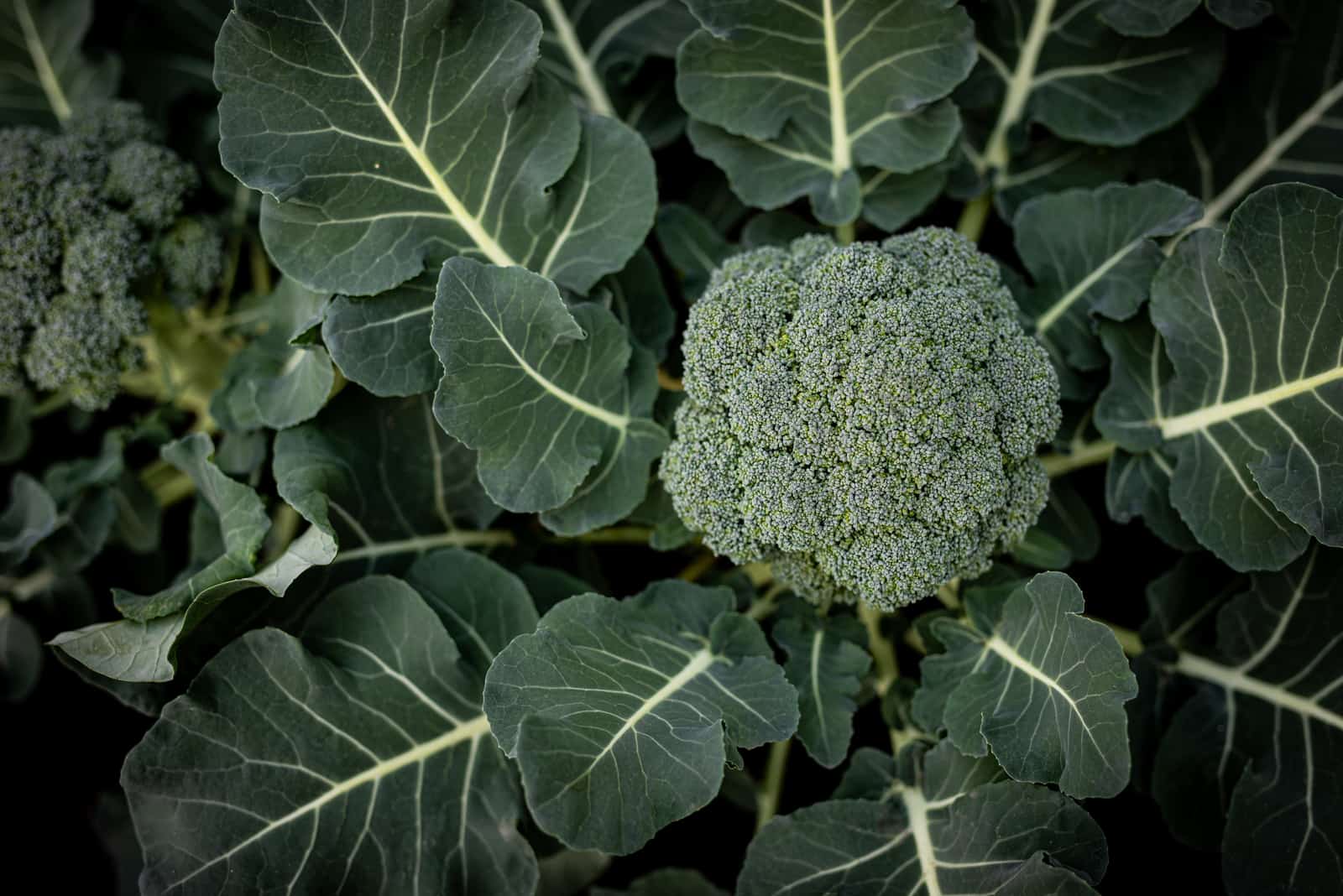
Broccoli is a biennial plant (even though it is grown annually), and it is definitely one of the healthiest vegetables out there!
Eating broccoli comes with many health benefits because it is filled with antioxidants, vitamins, minerals, and fibers. It is also quite easy to grow broccoli either from stems or seeds, and its plant care is not complicated.
Let’s look into more detail.
Broccoli Health Benefits
The numerous health benefits of broccoli make it one of the most crucial vegetables to cultivate in your own vegetable garden.
The vitamins A, C, K, B9, potassium, phosphorus, selenium, fiber, and proteins are just a few of broccoli’s key nutrients. You can either consume raw or cooked broccoli to get all of these necessary nutrients and vitamins!
Broccoli contains antioxidants that can lower blood sugar levels, the development of chronic diseases, and levels of harmful cholesterol. Your digestion and intestinal health can both benefit from these antioxidants and fibers.
Additionally, it has anti-cancer properties, and numerous studies have demonstrated that it prevents breast, prostate, kidney, and bladder cancer. It can also prevent mental deterioration and support healthy brain function.
It has bioactive ingredients that can slow down aging, as well as a lot of vitamin C to strengthen the immune system. It’s even beneficial to your bones, teeth, and skin!
Brief Broccoli Plant Care Guide
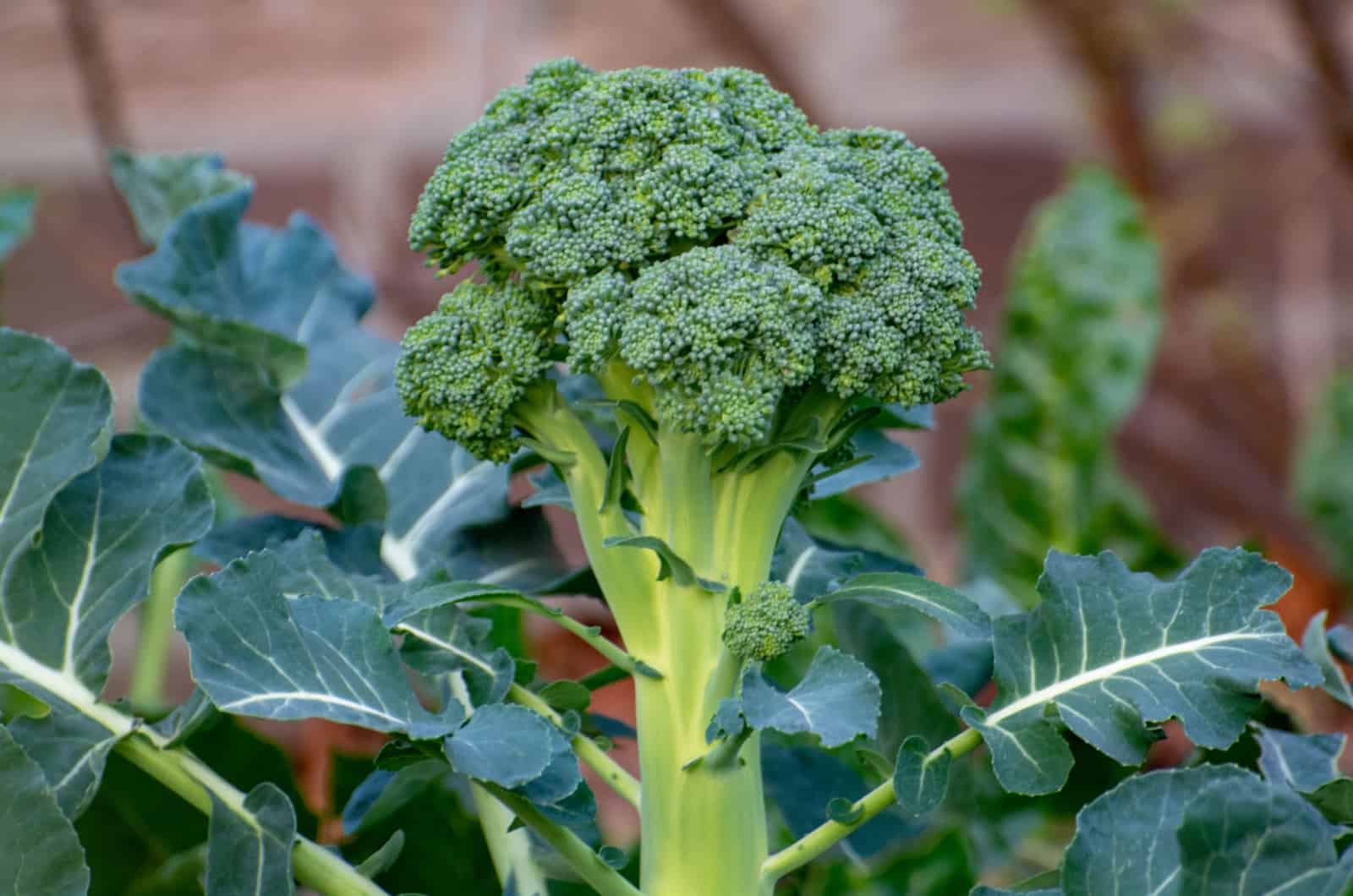
I’d like to offer you some advice on how to take care of broccoli plants. Broccoli, Brussels sprouts, collard greens, and other vegetables from the cabbage family all grow well in similar environments, and are ideal for your vegetable garden.
Read also: What Is The Perfect Broccoli Plant Spacing? Tips And Tricks
Water Requirements
To produce wonderful florets, broccoli needs one to two inches of water.
If you live in a location with frequent rain, I advise skipping the watering step because these vegetables despise soggy soil.
If you grow broccoli in containers, pay particular attention to watering because too much water will seriously harm these plants. Bear in mind that broccoli has shallow roots.
Soil & Fertilizer Requirements
The ideal soil for broccoli is somewhat acidic to neutral, and it needs sufficient drainage. Compost can be added to ensure more nutrients.
These vegetables prefer low-nitrogen fertilizers; for my broccoli, I always use 5 10 10.
If you want to avoid overfeeding your broccoli, make sure to follow the recommendations on a balanced 14 14 14 fertilizer.
Temperature & Humidity Requirements
Broccoli plants aren’t picky about humidity and will thrive in moderate conditions.
If you mulch the soil and keep it moist, you won’t need to be concerned about the humidity.
Keep in mind that the soil dries out more quickly in high humidity.
The ideal temperature range for broccoli is between 60 and 70 degrees Fahrenheit. Still, it can withstand both higher and lower temperatures (26 to 95 degrees Fahrenheit).
Early spring planting is ideal for the majority of broccoli cultivars.
Pests & Diseases
Aphids, caterpillars, cabbage loopers, flea beetles, cabbage worms, and cabbage root maggots are pesky pests to watch out for because they enjoy munching on this tasty, dark green produce (and who doesn’t?).
Fortunately, by employing a few straightforward pest control techniques, you can easily get rid of these pests.
If possible, try picking off as many pests by hand and only use insecticides in the event of a serious infestation.
The larvae can be treated with insecticidal soap or Bacillus thuringiensis, a natural pesticide.
Row covers are one of the greatest ways to keep pests away from broccoli.
Frequently Asked Questions
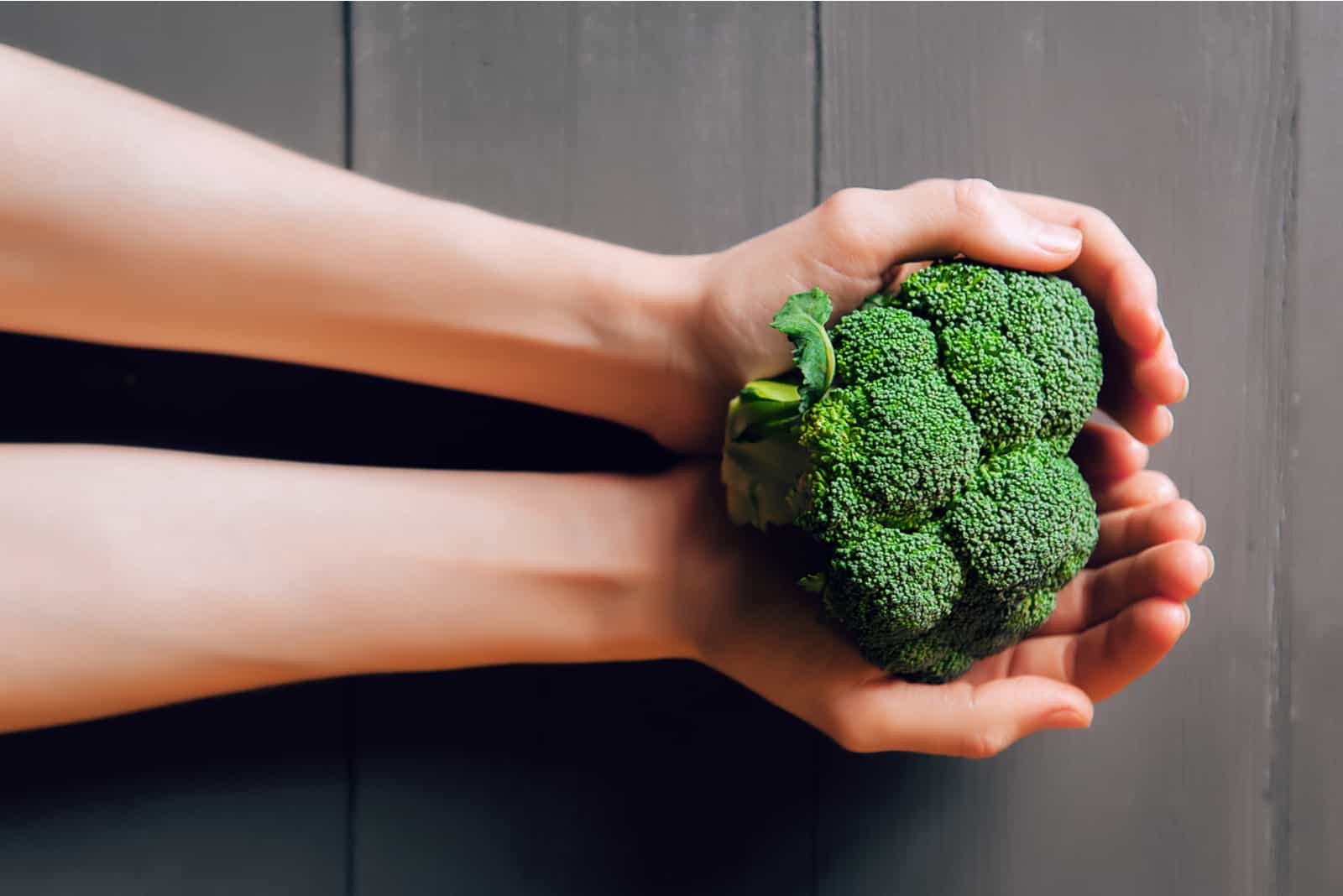
1. What is the difference between genetically modified and not genetically modified?
Genetically modified organisms have gone through a certain genetic modification — meaning that their genes have been mixed up in order to produce an organism with the most desired traits. This can include adding certain proteins to plants to yield better crops, prevent rotting, protect the plant from pests, and many more!
A non genetically modified organism is one that has undergone any type of genetic modification. It means that this organism is completely natural, and it does not contain any additional proteins or genes.
2. How long does it take to grow a broccoli plant?
A broccoli plant normally takes between 80 and 100 days to fully mature from seed, though this varies depending on the specific variety of broccoli and the local climate. The transplanted seedling will mature in 55 to 85 days if the plant is started inside.
For instance, although the “Eureka” variety needs about 87 days to mature, the “Pinnacle Premium Crop” variety matures in just 58 days.
3. Is broccoli genetically made?
No, broccoli is not genetically made, nor is it considered to be a genetically modified organism. This veggie has undergone a different process known as selective breeding, which means that you choose the parent plant with the most desirable traits and breed them with one another in order to produce offspring with the same traits.
To Sum Up
So, you’ve reached the end!
I hope that our article has provided you with enough information to answer the most famous question in gardening: “is broccoli man-made?”.
Even though it is not a GMO, broccoli is still produced by selective breeding, which is why it is considered to be man-made.
Nonetheless, I’m glad because it is one of the most healthy and tasty veggies that are easily grown in any type of garden. Sure, you will still have to provide them with optimal growing conditions, but they are generally easy to take care of.
If you don’t own a vegetable garden, you can still find them in supermarkets — you can also find watermelons, soybeans, corn, papayas, and many more!
Until next time!
Like this post? Share or pin it for later!
